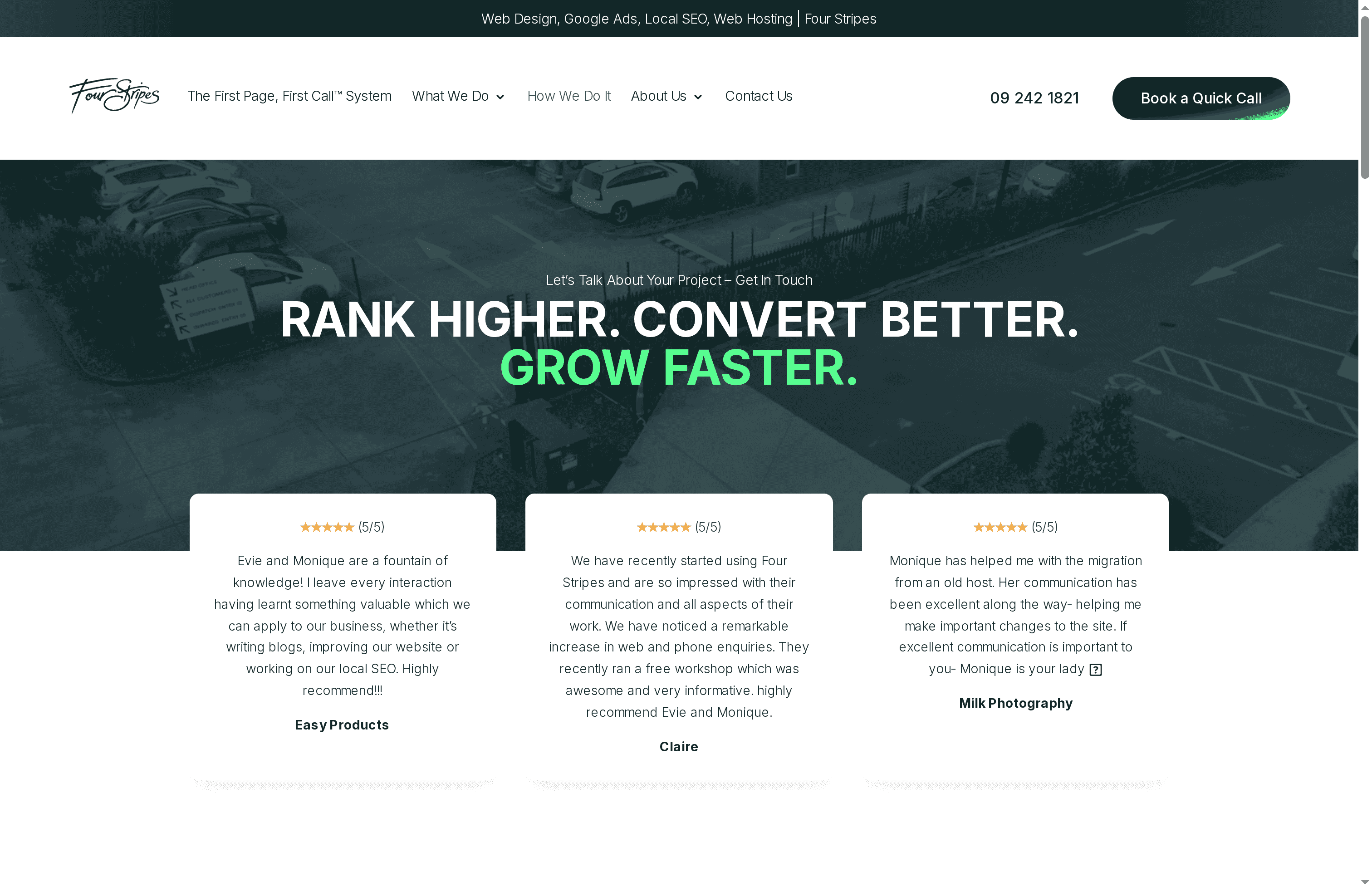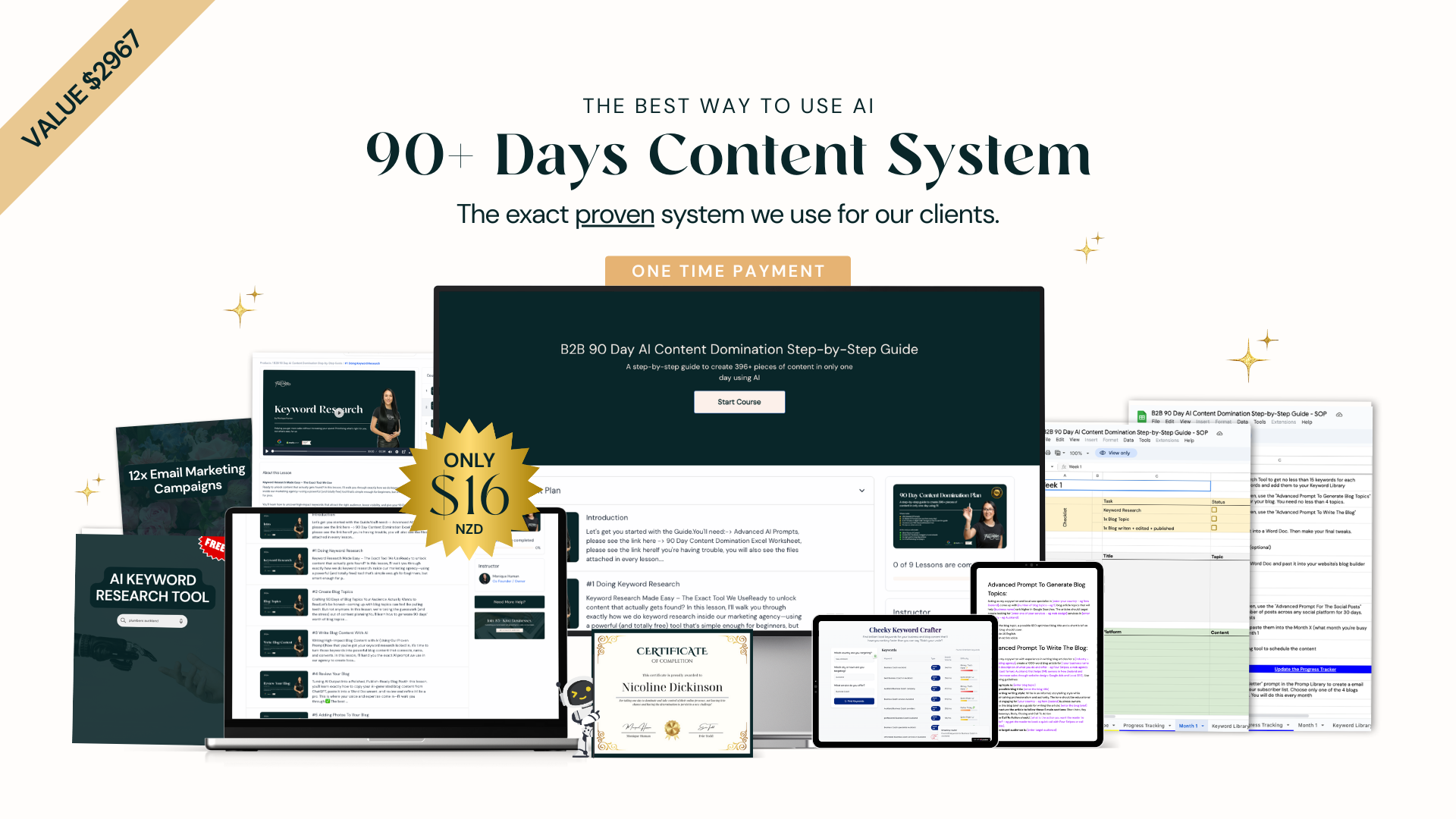Over half of marketers report that automation makes their campaigns more effective and saves them valuable time. In a world where customers expect fast, personalized communication, keeping up with every lead or inquiry can be nearly impossible without help. Understanding the basics of marketing automation gives you the edge to connect with your audience, simplify your workflow, and turn missed opportunities into real business growth.
Table of Contents
- Defining Marketing Automation And Core Concepts
- Main Types Of Marketing Automation Solutions
- How Marketing Automation Works In Practice
- Key Benefits For Small Service Businesses
- Potential Risks And Common Mistakes To Avoid
Key Takeaways
| Point | Details |
|---|---|
| Effective Automation | Marketing automation utilizes software to streamline repetitive marketing tasks, enhancing efficiency across channels. |
| Personalized Engagement | It allows for customer segmentation and targeted communication, creating a more personalized experience for users. |
| Key Benefits for Small Businesses | Small service businesses can leverage marketing automation for cost-effective marketing, improved lead management, and time-saving processes. |
| Caution Against Over-Automation | Businesses should avoid over-automation and maintain a balance between technology and genuine customer connections to maximize effectiveness. |
Defining Marketing Automation And Core Concepts
Marketing automation represents a powerful strategy that transforms how businesses manage and streamline their digital marketing efforts. Marketing automation is fundamentally about using sophisticated software to automate repetitive marketing tasks, enabling businesses to work smarter, not harder. According to Sprout Social, it involves leveraging technology to enhance marketing activities’ efficiency and effectiveness across multiple channels.
At its core, marketing automation goes beyond simple task management. It’s a comprehensive approach that allows businesses to segment customers, personalise communication, track engagement, and nurture leads through strategic, automated workflows. Key capabilities typically include:
- Automated email campaign management
- Customer segmentation based on behaviour
- Targeted content delivery
- Lead scoring and qualification
- Performance tracking and analytics
The evolution of marketing automation reflects changing buyer behaviours and technological capabilities. Wiley highlights that modern buyers are increasingly digital-savvy, expecting personalised, timely interactions. By implementing marketing automation, businesses can create more intelligent, responsive marketing strategies that adapt to individual customer journeys.
This means moving away from generic, one-size-fits-all communication towards highly targeted, data-driven engagement that feels personal and relevant.
Successful marketing automation isn’t just about technology—it’s about creating meaningful connections. By understanding your audience’s preferences, tracking their interactions, and delivering the right message at the right time, you transform marketing from a broad-brush approach to a precision instrument of customer engagement.
Main Types Of Marketing Automation Solutions
Marketing automation solutions are not one-size-fits-all, but rather a diverse ecosystem of tools designed to address specific business needs and marketing objectives. According to Salesforce, these solutions can be categorised into distinct types that cater to different market segments and strategic requirements.
Key marketing automation types include:
- B2B Marketing Automation: Focuses on lead generation, nurturing complex sales cycles, and supporting longer decision-making processes
- B2C Marketing Automation: Emphasises direct consumer engagement, personalised messaging, and quick conversion strategies
- Small Business Marketing Automation: Provides scalable, cost-effective solutions for businesses with limited resources
- Mobile Marketing Automation: Targets customer interactions through smartphone and mobile device channels
TechTarget expands on these categories by highlighting specific channel-based automation types. These include email marketing automation, which streamlines communication workflows, social media automation for consistent brand messaging, and content marketing automation that helps distribute and track content performance across different platforms.
The magic of marketing automation lies in its ability to transform generic marketing approaches into intelligent, responsive strategies. By selecting the right type of automation solution, businesses can create more targeted, efficient marketing campaigns that speak directly to their unique audience segments.
 Whether you’re a small local service provider or a growing enterprise, there’s a marketing automation solution designed to help you work smarter and connect more meaningfully with your potential customers.
Whether you’re a small local service provider or a growing enterprise, there’s a marketing automation solution designed to help you work smarter and connect more meaningfully with your potential customers.
How Marketing Automation Works In Practice
Marketing automation transforms complex marketing processes into streamlined, intelligent workflows that work continuously behind the scenes. According to Salesforce, these systems operate through sophisticated mechanisms that track, segment, and respond to customer interactions across multiple channels.
The practical implementation typically involves several key stages:
- Data Collection: Gathering customer information from various touchpoints
- Customer Segmentation: Categorising contacts based on behaviour, demographics, and engagement
- Workflow Creation: Designing automated response sequences
- Trigger-Based Actions: Setting up conditional responses to specific customer actions
- Performance Tracking: Monitoring and analysing campaign effectiveness
Sprout Social highlights that successful marketing automation relies on seamless integration with existing customer relationship management (CRM) systems. This integration allows businesses to create personalised communication pathways that adapt in real-time. For instance, when a potential customer downloads a resource, the system might automatically trigger a series of follow-up emails tailored to their demonstrated interests.
The real power of marketing automation lies in its ability to deliver the right message, to the right person, at precisely the right moment. By understanding individual customer journeys and leveraging data-driven insights, businesses can create more meaningful, targeted interactions that feel personal rather than generic. It’s not about replacing human connection, but enhancing it through intelligent, responsive technology that anticipates and meets customer needs more effectively.

Key Benefits For Small Service Businesses
Marketing automation represents a game-changing technology that levels the playing field for small service businesses competing against larger enterprises. Salesforce emphasises that these sophisticated tools can dramatically transform how small businesses approach marketing, customer engagement, and operational efficiency.
Key benefits for small service businesses include:
- Cost-Effective Marketing: Reduce manual marketing expenses by automating repetitive tasks
- Personalised Customer Interactions: Create targeted, meaningful communication without extensive resources
- Improved Lead Management: Track and nurture potential clients more systematically
- Time Savings: Free up valuable hours previously spent on manual marketing processes
- Data-Driven Decision Making: Access insights that inform smarter business strategies
Sprout Social highlights that marketing automation enables small businesses to compete more effectively by providing tools traditionally available only to larger organisations. For tradies, contractors, and local professionals, this means the ability to maintain consistent communication, follow up on leads automatically, and create professional marketing workflows without requiring a dedicated marketing team.
By optimising local SEO strategies, small service businesses can leverage marketing automation to not just survive, but truly thrive in competitive local markets. The technology transforms marketing from a time-consuming challenge into a strategic asset that works continuously in the background, helping businesses attract, engage, and convert more customers with minimal manual intervention.
Potential Risks And Common Mistakes To Avoid
Marketing automation is powerful, but it’s not a set-it-and-forget-it solution. According to TechTarget, businesses often encounter significant risks when implementing these technologies without careful planning and strategic oversight.
Common mistakes that can undermine marketing automation effectiveness include:
- Over-Automation: Removing human touch completely from customer interactions
- Poor Data Quality: Relying on incomplete or inaccurate customer information
- Lack of Personalization: Sending generic, impersonal automated messages
- Inadequate Segmentation: Treating all customers with a single, uniform approach
- Ignoring Performance Metrics: Failing to regularly review and adjust automation strategies
Sprout Social emphasises that successful marketing automation requires a nuanced approach. The key is finding the right balance between technological efficiency and genuine human connection. Small service businesses must remain vigilant, continuously monitoring their automated systems to ensure they’re delivering value rather than creating distance from potential customers.
To mitigate these risks, businesses should regularly audit their automation processes, maintain high-quality data, and remember that technology should enhance, not replace, authentic customer relationships. Automation is a tool, not a substitute for understanding your customers’ unique needs and preferences.
Unlock the Power of Marketing Automation for Your Small Service Business
Many small businesses struggle with managing repetitive marketing tasks while trying to build meaningful connections with customers. This article highlights how marketing automation can save time, improve lead management, and enable personalised communication, yet also warns of common pitfalls such as over-automation and poor data quality. If you want to transform your local marketing efforts and generate consistent inbound leads, adopting the right strategy is essential.
Marketing automation works best when paired with targeted local SEO and smart digital marketing approaches. At Four Stripes, we specialise in helping New Zealand tradies, contractors, and local professionals achieve quick 90-day transformations through our unique First Page, First Call system. We combine website design, local SEO, and Google Ads management to ensure your business not only ranks on page one but also converts searchers into loyal customers.

Don’t let complex marketing processes hold your business back. Take control today by partnering with experts who understand small service businesses and can personalise automation strategies that work. Reach out now via our contact page to start your journey towards smarter marketing and steady inbound calls.
Frequently Asked Questions
What is marketing automation?
Marketing automation is the use of sophisticated software to automate repetitive marketing tasks, enabling businesses to work smarter by improving efficiency and effectiveness across multiple digital channels.
How does marketing automation work in practice?
Marketing automation operates through key stages, including data collection, customer segmentation, workflow creation, trigger-based actions, and performance tracking, to create streamlined, responsive marketing strategies.
What are the main types of marketing automation solutions?
Marketing automation solutions can be categorized into several types, including B2B marketing automation, B2C marketing automation, small business marketing automation, and mobile marketing automation, tailored to specific business needs and objectives.
What are the benefits of marketing automation for small service businesses?
Key benefits include cost-effective marketing, personalized customer interactions, improved lead management, time savings, and data-driven decision-making, allowing small businesses to compete effectively against larger enterprises.
Recommended
- Hiring a Digital Marketing Strategist in NZ | Website Design & Google Ads That Generate Leads
- 7 Essential Types of Digital Campaigns for Local Success | Website Design & Google Ads That Generate Leads
- Website Design & Google Ads That Generate Leads | Four Stripes
- AI Invoice Parse – Workflow Automation Guide for 2025: A Path to Efficiency



